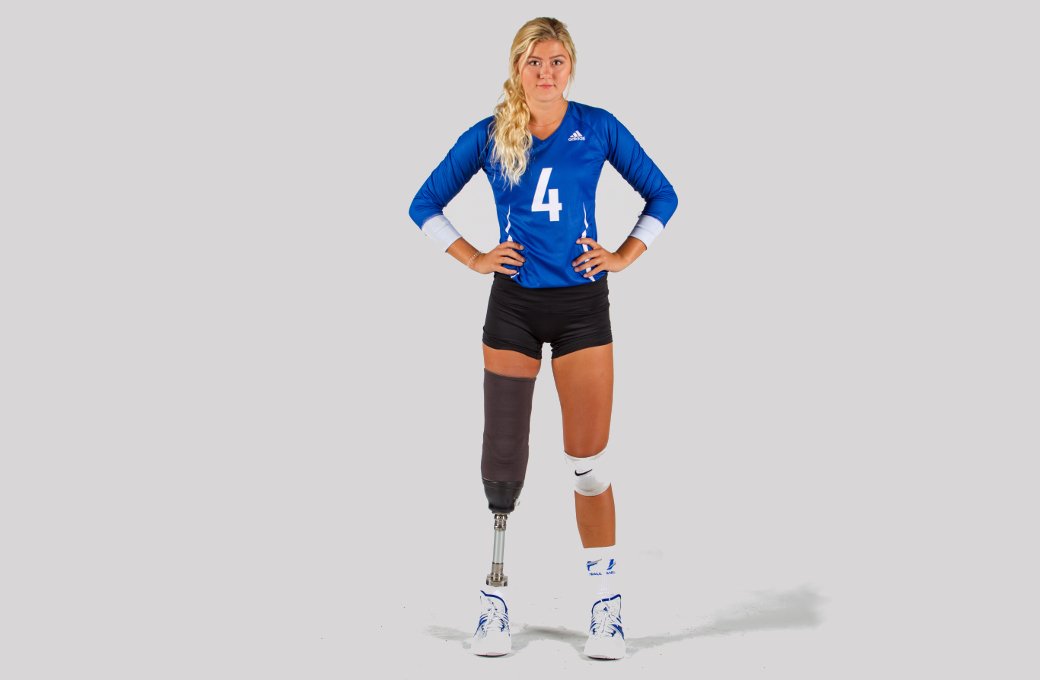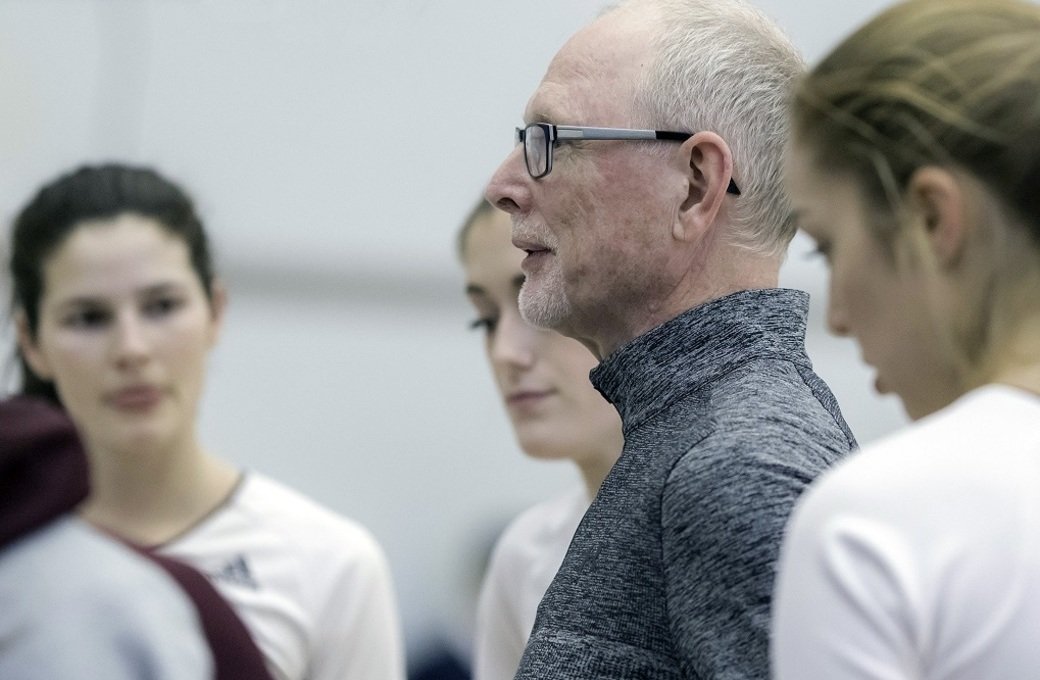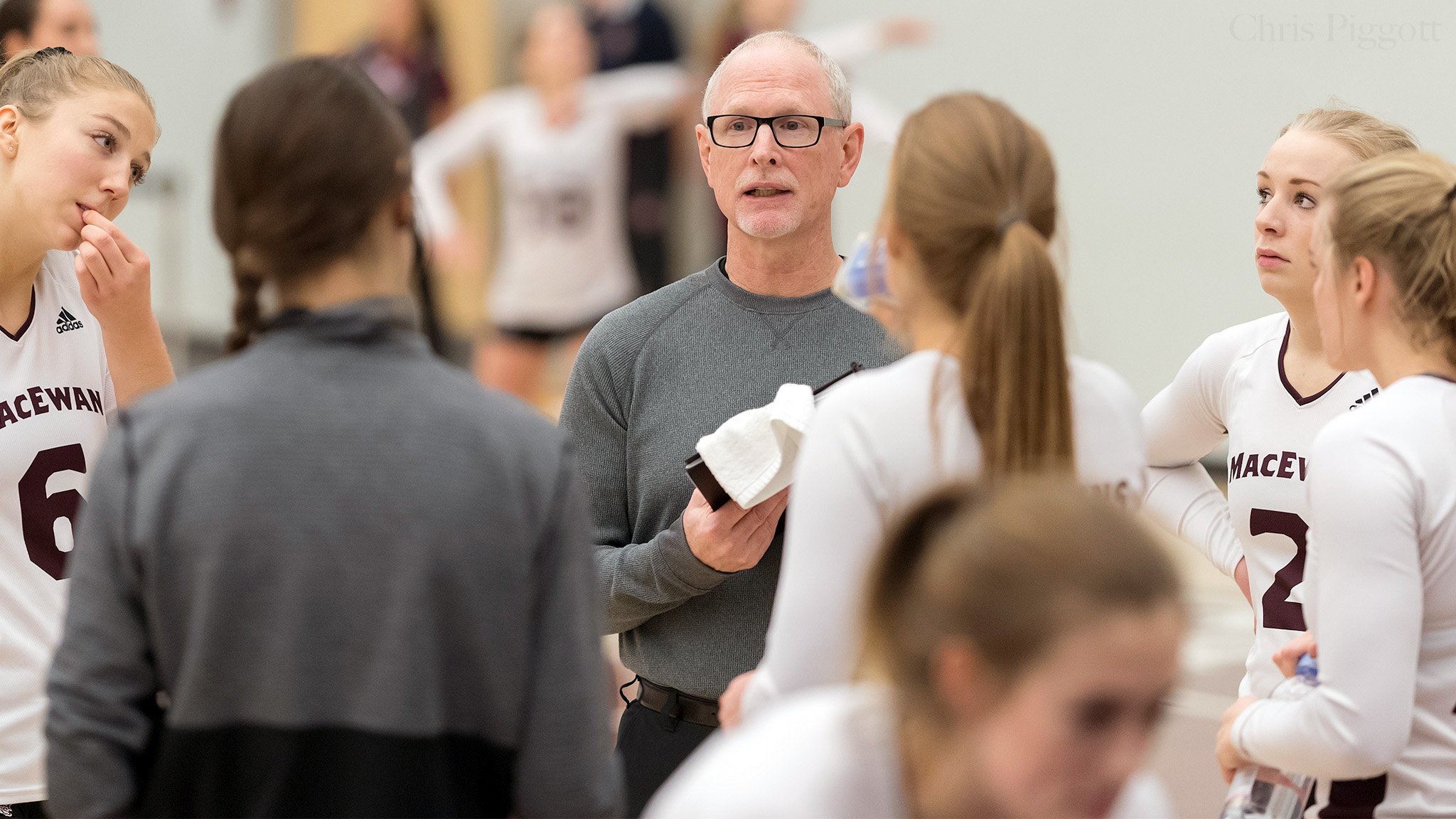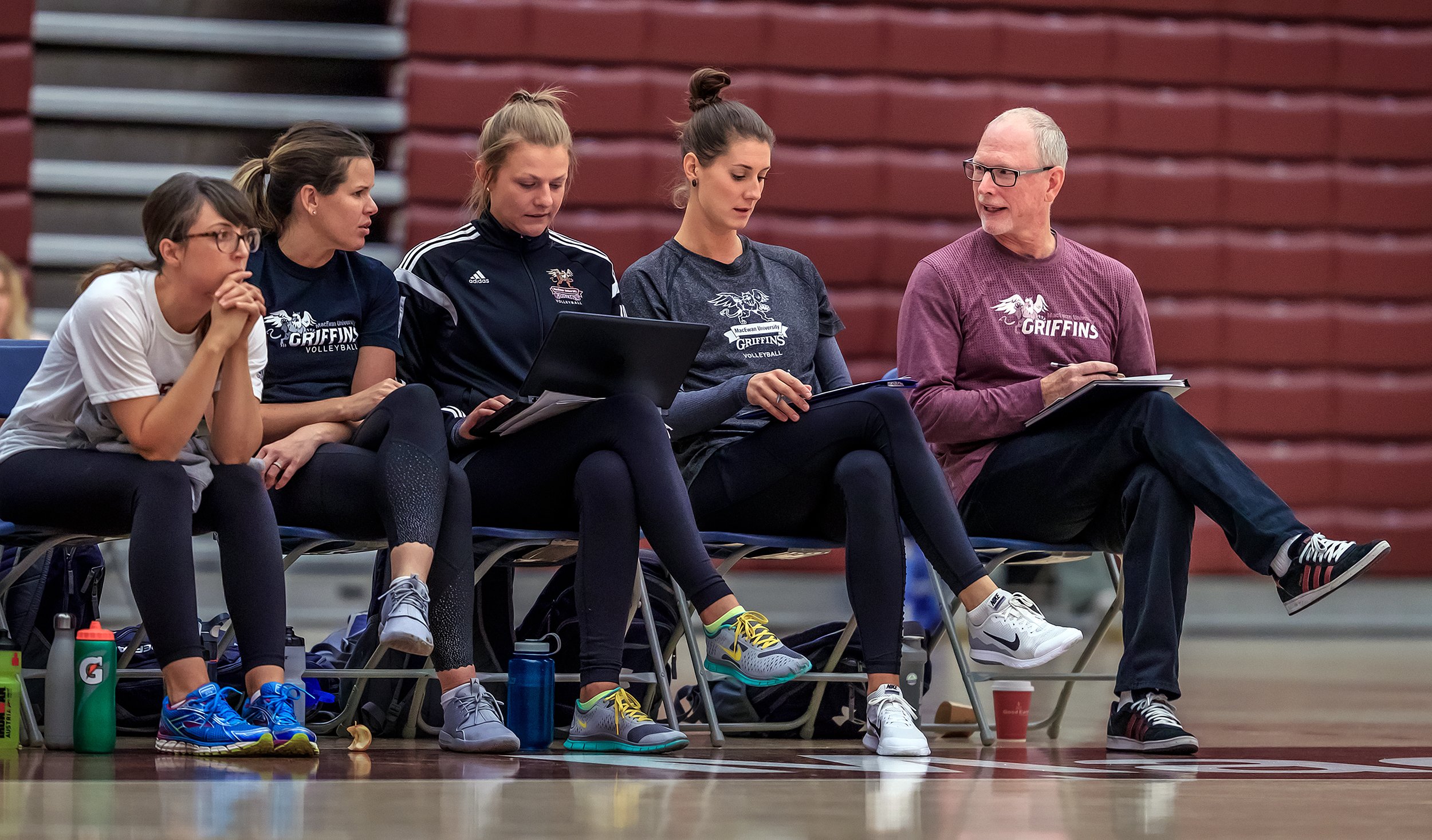Women’s Volleyball
Standing again: Heat libero Oakes back on her feet after Paralympic sitting success


U SPORTS Staff

Throughout the 2017-18 season, U SPORTS sits down with one key athlete, coach, and staff member of each U SPORTS athletic program in our new interview series “Getting to know…”
 Name: Ken Briggs
Name: Ken Briggs
School: MacEwan University
Sport: Women’s volleyball
Position: Head coach
Seniority: 16 years
Previous school/position: Assistant coach - Grande Prairie Regional College
Hometown: Sherwood Park, Alta.
1. How did you first get involved in coaching? What was your path to your position as head coach of the MacEwan Griffins?
I was a school teacher and I coached lot of sports. My coaching career started when I was a teenager and I coached softball and basketball. I had the opportunities and it was fun. Then, when I became a teacher, I learned how to coach everything. I didn’t have a lot of volleyball knowledge then – we’re talking the ’70s here.
I look back at how I started coaching volleyball and how the game has changed incredibly. So, I did it through teaching. I was a junior high teacher first, then I got involved in club volleyball in the ’80s. Then I got involved in the provincial team program early in the ’90s and I’ve been involved with that ever since. I moved to the high school level and then I started coaching with a good friend of mine (Lee Carter), who was coaching in Grande Prairie, Alta. But I’m here coaching high school and I joined him every weekend. So, I got my first exposure to the college level. And then I came to MacEwan 16 years ago and coached at the Alberta Colleges Athletic Conference (ACAC) level, which led to Canada West. That’s my volleyball evolution. What’s neat about it is I’ve coached every level from elementary school to here and kind of worked my way up.
2. Who are the people that have influenced you most as a coach?
It’s the student-athletes themselves – right from the junior high kids to the high school to university. They’re the ones you cater your coaching to. The hundreds of student-athletes have been the biggest influence.
What I’ve really learned to appreciate – because I’ve been in the school system or the club system – is you’re never just your sport. I think of people that I’ve coached with here, who coach basketball or hockey – the current coaches here now. They influence me every day. We don’t spend as much time as we used to, but when former MacEwan men’s soccer coach Cam Leverman was here, we’d call it professional development. That was the half-hour lunch. We’d just talk about the differences in our sports, etc.
I’ve been exposed to a lot of great coaches, but the athletes have definitely been my biggest influence.
3. How would you describe your coaching style?
Ever-changing. It is a work in progress, especially in today’s era. I’ve always favoured the technical side of the game. I think a lot of coaches say that, but I think, especially in the women’s game, it’s not a game in the air as much as it is a game of being technically correct to take advantage of the things you can do physically.
Another big part of it is coaching the whole person. I’ve always been a teacher first. The things that have come along with me over time is that’s still a big part of it, too.

4. Which coach do you admire the most, and why?
I admire parts of everybody. I’ve had the fortune to coach at every level. I can still go to a club tournament and watch coaches coach and appreciate the things they do that I admire. I always say volleyball – and I’m sure it’s in every sport – we’re the best copycats there are. Our drills and everything, we make a lot of them up or they’re based on people we’ve watched or teams we’ve watched or things we’ve done. I’ve always done that.
Right from pro coaches you read about – I read a lot of books – there’s things you like, things I don’t, but it’s more the people I’ve grown up with.
Right now, today, the coach I admire the most is my assistant Nicole Ban - her involvement in our program and how she teaches, but also her involvement with the Paralympic team. She’s Team Canada’s women’s sitting volleyball head coach. Watching her evolution has been so inspiring for me – how good a coach she is and is going to be.
5. What is the most “out-of-the-box” thing you’ve done as a coach?
I don’t do out-of-the-box. For me, out-of-the-box is using more technology or – it sounds funny – using pool noodles or badminton racquets or things throughout your career where you use anything to help an athlete learn a technique.
6. What is your greatest coaching moment or achievement?
When I get to meet athletes from the past, even to the point now – I’ve been in it so long – that I coach or teach their children. That’s really neat to run into them at camps but still get that feedback that that was so important in their life. That makes me realize the number of lives that a coach who has some life…how many lives you’ve touched and how appreciative they are years after. That’s my greatest achievement.
If you want to look at specifics, I’m very proud of our record at the college level. The biggest thing was in 2007, breaking the 22-year run of Quebec at the Canadian Collegiate Athletic Association (CCAA) Championship, then realizing that they haven’t won since. Now, it’s Alberta or B.C. almost every year since. We were the first one to break that. That was exciting because we beat both Quebec teams in that championship.
Also, the first weekend of our Canada West experience (Oct. 10-11, 2014) where we beat UBC two games in five sets – that’s just incredible. They had just come off a national championship (in 2013, and a Canada West title in 2014). I still remember it was 14-9 on the Saturday and we came back and won 16-14.
7. What’s the best advice you can give to an athlete and/or athlete’s parents?
Be honest. Do your homework when you’re looking at playing post-secondary. Understand that every decision a coach makes, there’s been time and thought put into it. Just remember that coaches really do care. Every decision is weighted and valued.

8. How have you changed as a coach over time. What principles/values, etc. have remained the same?
Less authoritarian – the old school style. I think there still needs to be that, but that’s the biggest thing. I’m working with older players now and giving them a voice and a part of the culture of the team and how your program is run is important.
I’m constantly having to learn how to communicate better. Today, everything that ever happens is a result of communicating poorly or really well. One of my favourite questions is: “What did you hear?” I could go blah, blah, blah and they keyed on one word. So, learning how to communicate better, for me, is huge.
The ones that have remained the same, that I can’t change – it’s still life skills, things like manners, respect – my team knows I expect that. The typical words like honesty, integrity and caring. For us, the little things matter. It’s not important to everybody, but they know it’s important to me.
There’s also the whole academic end of it. They are student-athletes and I’m very proud of our program and how that matters. I want that to continue.
The last thing is just trying to hold traditions. I’ve had the luxury of being here over a period of time. There are certain things that I won’t give in on, no matter how old-fashioned they are.”
9. What do you enjoy doing when you’re not in coaching mode?
The number one priority is my grandkids. I love movies, I love reading. The sad part about that is a lot of movies and reading I do have to do with coaching.
I love watching all sports, immensely. But it says what do you do when you’re out of coaching mode? I can’t watch a sport and not coach it. You’re looking for the nuances of the game and stuff.
10. What’s the most embarrassing thing that’s ever happened to you as a coach?
Getting the only red card of my career. It was in this gym (at MacEwan) when I was early in my coaching career. I got it because I didn’t know how to protest a call properly. So, I did it wrong and I got a red card. I was just a young guy, not understanding the proper protocol and being embarrassed because there’s the red card of your career.
Women’s Volleyball
Declan Riley
